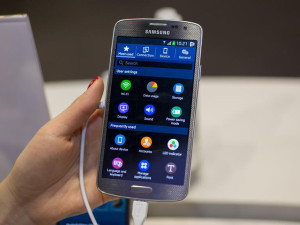 Samsung Electronics started selling its first Tizen smartphone in India on Wednesday, priced at $92.
Samsung Electronics started selling its first Tizen smartphone in India on Wednesday, priced at $92.The Z1 runs the open-source Tizen operating system backed by Samsung and other vendors including Intel, and which already powers some of the South Korean company’s wearables and TVs.
Samsung announced a different Tizen smartphone, the Z, in June, ahead of the Tizen Developer Conference in San Francisco.
It said then that it would launch it first in Russia, in the third quarter of 2014, but that phone never appeared. According to some accounts, the release of a Tizen phone in India was also delayed.
The Z1 has relatively low-end specs compared to the planned Z, which was to have a 4.8-inch HD Super AMOLED display and a 2.3 GHz quad-core application processor, indicating that Samsung has shifted its focus with Tizen to the low end of the market, a booming segment in India and other emerging markets.
In India, the Z1 will have to compete with Android phones with similar hardware capabilities and similar prices, said Vishal Tripathi, Principal Research Analyst, Gartner. Tizen phones may take time to take off because people are not familiar with the operating system, he added.
The Z1 runs Tizen 2.3 and has a 4-inch, 480×800 pixel screen and a 1.2GHz dual-core processor. It has 768MB of RAM and 4GB of internal storage, expandable by up to 64GB with a microSD card. Samsung claims the 1500mAh battery will play video for 7 hours or provide 8 hours of talk time.
Available in white, black and wine red, the smartphone has a 3.1 megapixel rear camera and a VGA front camera with face detection software.
A key focus of the device seems to be entertainment. Samsung has bundled the phone with three months’ free access to movies and songs from Indian digital entertainment websites. The company is also providing users free access to premium content on its own Club Samsung digital entertainment storefront, and has tied with local mobile service providers Reliance Communications and Aircel to provide 500MB of free 3G data services per month for six months.
Samsung has also featured in the Z1 a SOS alert. Users have to press the power button four times for the Samsung Z1 to send out a ‘Help’ message to the user’s primary contacts and track the user’s location to provide necessary assistance.
Getting people to use Tizen phones instead of Android will depend largely on what apps are offered on Tizen, particularly if some apps on Tizen are better than those available on Android, Tripathi said. He pointed out that currently there are not as many developers of apps on Tizen as for Android.





